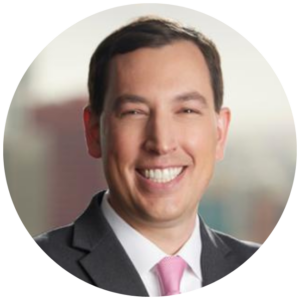Locums CME is a bi-weekly roundup of recent news that matters to locum tenens providers. Stay in the loop on what’s new in the locums industry, and make the most of the locum tenens lifestyle with our fresh finds.
AMA Survey: Physicians Torn Between AI’s Healthcare Potential and Peril
Jan. 12, 2024
Healthcare officials are hopeful that artificial intelligence can have a positive impact on healthcare. But American Medical Association President Dr. Jesse Ehrenfeld says he still has significant concerns with AI’s propensity toward “racial bias,” which has led to distrust in AI from healthcare providers.
At CES, an annual Consumer Technology Association trade show, Dr. Ehrenfeld showcased AMA’s commitment to ensuring AI positively impacts patient care with transparency and trustworthiness. But, during one of the two CES panel discussions focusing on healthcare AI, Dr. Ehrenfeld raised his concerns about AI and his hopes to address those concerns.
 He explained how AI has the potential to alleviate physician administrative burdens and support wellness in the healthcare workforce. But he also mentioned how there were “already too many examples” of systems with biased training data or a failure to acknowledge a flaw in the design software. Dr. Ehrenfeld told attendees these problems should be addressed “at the outset” to avoid reproducing and unintentionally normalizing racial and other biases in their training sets.
He explained how AI has the potential to alleviate physician administrative burdens and support wellness in the healthcare workforce. But he also mentioned how there were “already too many examples” of systems with biased training data or a failure to acknowledge a flaw in the design software. Dr. Ehrenfeld told attendees these problems should be addressed “at the outset” to avoid reproducing and unintentionally normalizing racial and other biases in their training sets.
Dr. Ehrenfeld’s concerns match those from the AMA’s recent “Augmented Intelligence” survey, which found that nearly two-thirds of 1,081 responding physicians saw advantages in using AI in healthcare. But at the same time, 41% expressed grave concern over its potential uses.
To guide the development of healthcare AI, the AMA is actively working on establishing standards. They have also released their own set of AI principles. At the conference, the AMA president urged AI developers and regulators, who also attended the event, to ensure AI gets designed and implemented correctly so it doesn’t negatively impact the physician-patient relationships.
More than 90% of the surveyed physicians asked for clearer information about AI, including how AI’s creators make decisions, its efficacy, intended use, limitations, bias management, and adherence to standards. Doctors and healthcare professionals calling for transparency say it’s the only way for companies to earn and keep the trust of physicians and consumers.
Dr. Ehrenfeld stressed that ensuring safe and reliable AI products in the marketplace is needed to earn and maintain the trust of both consumers and physicians. Read the full article to learn more about AI in healthcare and the AMA’s AI resources.
Your Locums Prescription
Survey Results Show Locum Tenens Physicians More Content in Their Work Than Perm Docs
Jan. 15, 2024
A recent survey locum tenens agency Barton Associates conducted with physicians, both locum tenens providers and permanent positions, showed that the locums were more content at work because of the benefits afforded them through their assignments.
The survey included thought-provoking insights into what physicians want most from a job. Here’s what the survey found:
1. Locum Tenens Physicians Report Higher Job Satisfaction: The survey reveals that locum tenens physicians exhibit a remarkable 38% higher job satisfaction than their permanent counterparts. 90% of locum tenens doctors surveyed expressed contentment with their current positions, while only 65% of permanent physicians shared the same sentiment.
2. Locum Tenens Doctors Enjoy Better Work-Life Balance: Another observation was that locum tenens doctors were 41% more likely to call their work-life balance satisfactory than permanent physicians. The results suggest that the flexibility of locum tenens positions contributes to a more balanced professional and personal life.
3. Locum Tenens Physicians Feel They Are Fairly Compensated:The locum tenens doctors were 33% more likely to believe they were fairly compensated as healthcare providers. Specifically, 40% of locum tenens doctors were satisfied with their compensation, unlike 41% of the permanent doctors.
4. Concerns About Physician Shortage: The survey reflects a shared concern among all physicians about the shortage of healthcare professionals in the United States. According to the Association of American Medical Colleges (AAMC), a significant physician shortage is projected by 2034, with estimates ranging up to 124,000 physicians. 95% of surveyed physicians expressed apprehension toward healthcare facilities maintaining adequate staffing levels in 2024.
5. Physicians Considering Locum Tenens Roles in 2024: Nearly half of the surveyed physicians contemplated accepting locum tenens assignments in 2024, which shows growing interest in a more flexible healthcare model.
6. Concerns About Workload: 88% of physicians share concerns about their workload as healthcare providers in the coming year, indicating the significance of addressing this issue within the industry.
Survey results are from Nov. 17 through Dec. 4, 2023, and included responses from 245 physicians in Barton Associates’ network. The network comprises full and part-time locum tenens providers, retired professionals, and permanent providers.
The findings show how the healthcare landscape has shifted, the overall perception of locums, doctors’ employment preferences, and the profession’s challenges. Read the full article for a deeper, detailed exploration of these insights.
The Impact of Locum Tenens on Overworked Urology Practices
Jan. 8, 2024
Urology is known for its high demands and stress levels. Urologists face complex and time-consuming procedures while managing acute and chronic conditions, and the limited number of specialists results in extended working hours and an often overwhelming patient load. Introducing locum tenens urology roles is a strategy facilities use to alleviate these challenges.
Locum tenens providers play a vital role in relieving overworked urologists and:
- Reducing the workload for permanent staff
- Offering scheduling flexibility for urologists
- Ensuring continuity of care during staff shortages.
Locum tenens eases the burden on healthcare providers and helps them maintain a high standard of patient care.
Integrating these providers into your practice successfully requires clear communication, thorough orientation, training, feedback mechanisms, which are systems that facilitate continuous improvement in a healthcare environment, and ensuring the locum tenens providers are a cultural fit through holding regular check-ins.
These practices facilitate seamless collaboration and support within the healthcare environment. Locum tenens urologists can contribute significantly to a practice, especially one with doctors on the brink of burnout. Read more about how urology practices can benefit from using these locums specialists in the article from Vista Staffing.
4 Essential Attributes for Top Candidates to Ensure Success in Locums
Jan. 9, 2024
An article from staffing agency Hayes Locums emphasizes the qualifications and attributes that make an ideal candidate for locum tenens work. Four primary attributes help candidates stand out when applying for locums jobs.
Certifications & Qualifications
The article emphasizes the importance of board certifications and qualifications for ideal locum tenens candidates. Additional advanced certifications such as ATLS, ACLS, BLS, and PALS add considerable value to candidates. These qualifications not only demonstrate a candidate’s expertise but also increase their appeal to hospitals seeking specific skills.
Availability & Flexibility
A key attribute of a successful locum tenens candidate is the ability to offer flexible job availability. Given the diverse scheduling needs of hospitals, candidates who can adapt to various schedules are more sought after. Their flexibility caters to the needs and preferences of the healthcare facility and the locum provider, paving the way for effective and efficient service delivery.
Licensure
The article highlights the benefits of holding an Interstate Medical Licensure Compact (IMLC) license, which facilitates the ability to practice in multiple states. An agency can assist with state licensing for physicians not part of the IMLC, but the process expedites licensing for those already in the IMLC.
Adaptability
Adaptability is also a crucial trait for locum tenens physicians. Comfortably adjusting to new healthcare environments, different technologies, resources, and medical teams is another thing essential in locum tenens. Candidates must be capable of managing the demands of various settings, from busy practices to solo environments, demonstrating their versatility and skill in diverse clinical situations.
Uncover the essential skills and credentials needed to kickstart your locum tenens journey.
Physician Wellness Retreat
Doctor’s Addiction Story Highlights a Widespread Issue in Healthcare
Jan. 7, 2024
The Medical Board of California is developing a new program to help treat and monitor doctors with alcohol and drug problems. An article from MedpageToday highlights the need for this program, examining the issue through the lens of Beverly Hills physician Dr. Ariella Morrow. In the course of a few years, Dr. Morrow’s personal challenges, including family trauma, marital issues, and professional setbacks, sent her into a downward spiral of heavy drinking.
Through her story, she sheds light on the vulnerability of healthcare professionals to substance abuse, with alcohol being a common choice among doctors. Her struggle with depression and alcohol addiction highlights a growing concern for doctors and others in healthcare grappling with the disease.
The Medical Board’s program sparked debate regarding whether doctors who voluntarily enter this program should be subject to public disclosure. Patient advocates argue transparency is essential to protect healthcare consumers, while addiction medicine professionals stress the importance of confidentiality to encourage troubled doctors to seek help early.
Addiction rates among physicians are just as high as in the general population, according to the Substance Abuse and Mental Health Services Administration. The ready access to pain medications poses a particular risk for physicians, though. Once a pioneer in physician treatment and monitoring, California revisited its approach after terminating the previous program in 2008 due to flaws in its implementation.
While the proposed regulations aim to protect both physician privacy and patient safety, questions remain about the financial burden doctors would bear. In other states, outside funding helps reduce the costs for participants.
Dr. Morrow’s story serves as a reminder healthcare professionals, like anyone else, can face addiction, and addressing this issue requires a balanced approach. To learn more about the proposed program and Dr. Morrow’s story, see the full-length article from MedpageToday.
Tackling the Mental Health Epidemic Among Medical Students
Jan. 9, 2024
In exploring the medical education system’s role in physician burnout, PharmaNewsIntelligence delves into how medical school’s rigorous and demanding nature can contribute to mental health issues among medical professionals.

Dr. Arti Masturzo, Chief Medical Officer at CCS, provides a firsthand account of the intense academic pressure and the evolution of medical school requirements. She notes how increased expectations placed on medical school applicants and students each year significantly contribute to burnout.
The article highlights the alarming mental health statistics among medical students. According to research from Baylor University Medical Center Proceedings, 27% of medical students globally experience depression, while 34% suffer from anxiety. More concerning is that approximately 11% have suicidal ideations. Dr. Masturzo discusses how inadequate mental health support in medical education leads to most assistance being reactive instead of proactive. This approach, coupled with the stigma surrounding mental health, makes it difficult for medical students and professionals to seek help.
Dr. Masturzo also addresses clinician burnout, reframing it as an issue of fulfillment rather than workload. She points out that burnout often stems from a lack of satisfaction and feeling undervalued in the profession. The full article on PharmaNewsIntelligence offers a comprehensive view of these challenges and potential solutions in the medical education system.
Doctors Who Unplug on Vacation Less Likely to Face Burnout, Research Finds
Jan. 12, 2024
A recent study involving over 3,000 US physicians reveals that taking vacation time and refraining from work during these periods can significantly reduce the risk of burnout and enhance professional fulfillment. The survey, conducted from Nov. 20, 2020, to March 23, 2021, by Tait Shanafelt, MD, of Stanford University School of Medicine and colleagues from the American Medical Association (AMA), analyzed the vacation behaviors of physicians and their association with burnout.
The findings show that more than half of the surveyed physicians took 15 or fewer vacation days annually, with 20% taking only five or fewer days. 70% reported engaging in work-related activities during their vacations. The analysis revealed that working during holidays and having electronic health record (EHR) inbox coverage significantly influenced burnout and professional fulfillment levels.
The study also highlighted the challenges physicians face when taking vacations, such as finding someone to cover clinical responsibilities and the financial impact of taking time off. More than one-third of respondents identified these as significant barriers. The results showed that taking more than three weeks of vacation per year and having full EHR inbox coverage while on vacation were associated with a reduced risk of burnout. Also, it showed how spending 30 minutes or more on work-related tasks during a vacation day was linked to a higher risk of burnout.
This comprehensive study shows the importance of vacation time and the need for systems that support physician well-being. The full article on HCP Live provides a detailed analysis of these findings and their implications for the healthcare industry.
Doctor’s Notes
The Evolving Role of NPs in Meeting The Healthcare Demands of 2024
Jan. 4, 2024
The American Association of Nurse Practitioners outlined several critical factors that nurse practitioners (NPs) and healthcare professionals say loom over 2024 and must be addressed. First and foremost, there are ongoing provider shortages, increased appointment wait times, and increased patient demand.
One significant concern is the primary care provider shortage in the country, with 102 million Americans residing in areas lacking sufficient primary care services. According to the Department of Health and Human Services, this shortage has increased by 3% in the past year.
Additionally, appointment wait times remain a persistent issue in care centers across the US, with statistics indicating that patients often face long delays in accessing care. The impact of extended wait times on patients is deeply concerning because nearly half of those affected give up on seeking necessary care to avoid the delay. The wait time problem is worse because of the growing demand for care, particularly among the country’s senior population. With the aging Baby Boomer generation, there will be more of an increased need for complex healthcare services, which means NPs will play a prominent role in providing care to this demographic.
Primary care settings also have seen a rise in mental health screenings, adding to healthcare providers’ demand. AANP believes NPs are well-suited to fill these gaps primarily because they already play a significant role in delivering care to the Medicare population. The NPs’ extensive training and primary care experience make them valuable assets, especially in rural areas.
As we get deeper into 2024, AANP highlights the importance of expanding the scope of practice for nurse practitioners as a vital measure to address workforce challenges and improve access to care. The healthcare industry is evolving, and NPs are poised to ensure efficient and patient-centered healthcare delivery.
Access the article to understand better the evolving landscape of nursing practice and patient care.
How AMA Supports Emerging Physicians Amidst Legal Strains
Jan. 12, 2024
Medical liability litigation can be emotionally taxing for healthcare providers. Dr. Louise B. Andrew, a seasoned physician and attorney, is offering mentorship as an ambassador to the American Medical Association. Dr. Andrew draws from personal litigation experience and uses a unique blend of legal and medical knowledge to mentor physicians undergoing litigation.
The American Medical Association (AMA) advocates for physician wellness, and the organization stands firmly by physicians during these challenging experiences. The AMA focuses on preventing burnout, fostering a culture of team-based care, and improving healthcare efficiency to equip physicians to tackle the stresses of their profession, including the rigors of medical liability litigation.
The AMA also supports medical students and early-career physicians, nurturing a culture of wellness and resilience among the future healthcare workforce. Beyond wellness, the AMA also actively engages in initiatives tackling physician shortages, advocating for Medicare payment reform, and exploring the role of artificial Intelligence in healthcare. Through these endeavors, the AMA aims to create a more favorable healthcare environment for physicians, which benefits their patients.
The AMA tailors its support services specifically to the unique needs of physicians. The mentorship offered by Dr. Louise B. Andrew, coupled with the comprehensive resources of the AMA, plays a pivotal role in assisting physicians as they navigate the intricate landscape of medical liability litigation.
Read more about Dr. Andrew and the AMA’s contributions to doctors facing medical liability litigation in this article from Medriva.









